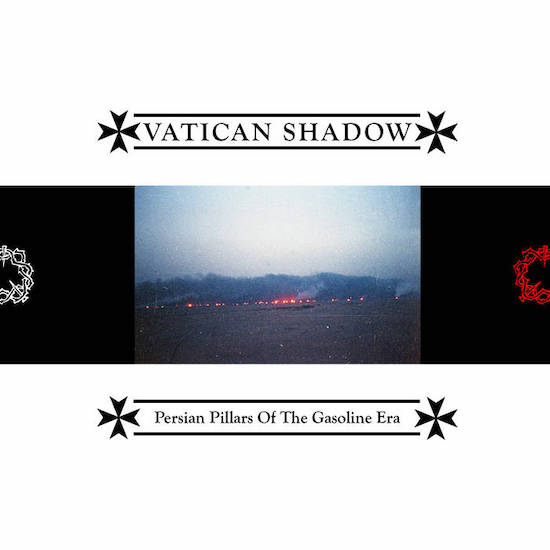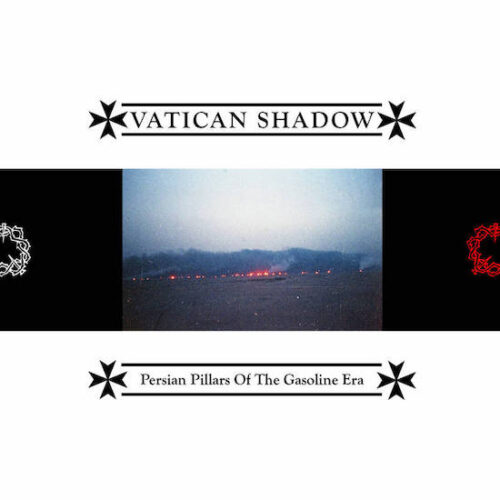The sound of Vatican Shadow’s new album Persian Pillars Of The Gasoline Era evokes a glazed, sandblasted calm. It’s the kind of calm that anticipates, or is caused by, conflict. The blank, slightly sterile quality of the electronic arrangements and production means that this ghostly landscape lacks comfort or canopy. I was about to describe the record as ‘expansive’, but although the six pieces are formed of simmering soundscapes, they’re simply too tightly-wound to call expansive, too anxious to be able to divert one’s focus from. I’m reminded of Pinch’s track ‘Quawwali’ which broods with skeletal intensity but uses deceptively simple instrumentation.
There’s a pleasing lack of frippery on this record. The kick drums on ‘Rehearsing For The Attack’ sound like explosions heard through a walkie-talkie, and the hi-hats on ‘Taxi Journey Through The Teeming Slums Of Tehran’ rasp like television static. Why would there need to be much structural development when a piece can simply gather steam? The queasy synth pads on opener, ‘Predawn Coup D’etat (Schwarzkopf Duffle Bags Of Rials)’, are hurried along by precise, insistent drum patterns that slowly develop and are brought into sharper focus.
Persian Pillars Of The Gasoline Era is one of those albums that occasionally makes you tear off the headphones thinking something (or someone) unseen has made a noise but in actual fact it’s some subtle textural part right in the background; the Haxan Cloak’s Excavation and Kali Malone’s The Sacrificial Code also have this slightly marvellous but basically alarming effect.
Not only are the song titles enjoyably long-winded and wordy (sound… familiar?), but they direct a sense of movement, from expectancy – ‘Predawn’, ‘Rehearsing’ – to motion – ‘Taxi Journey’, ‘Moving’ – and finally to ‘Ayatollah Ferocity (The Refinery At Abadan)’, the last cut on the album, which is the only moment where things unwind a little. Skittering percussion charges around rude, yawping drones that squat in the middle of the track like a belligerent toddler.
In Notes From Underground, Dostoyevsky details the “irritability that threatened an explosion”. This closing piece feels like the conflict that the first six songs forecast, a kind of half-exultant, half-grumbling denouement.
Persian Pillars Of The Gasoline Era‘s intensity is achieved though mood and tension being favoured over sound and arrangement. The result is unyielding and brilliantly boot-faced.



